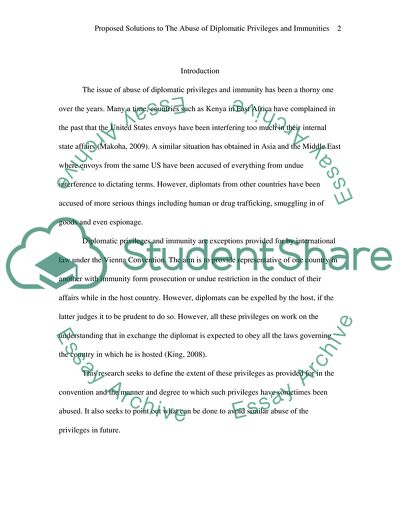Cite this document
(The Abuse of Diplomatic Privileges and Immunities by the Diplomatic Research Paper, n.d.)
The Abuse of Diplomatic Privileges and Immunities by the Diplomatic Research Paper. Retrieved from https://studentshare.org/politics/1734142-the-abuse-of-dioplomatic-privileges-and-immunities-by-the-diplomatic-envoys-proposed-solution
The Abuse of Diplomatic Privileges and Immunities by the Diplomatic Research Paper. Retrieved from https://studentshare.org/politics/1734142-the-abuse-of-dioplomatic-privileges-and-immunities-by-the-diplomatic-envoys-proposed-solution
(The Abuse of Diplomatic Privileges and Immunities by the Diplomatic Research Paper)
The Abuse of Diplomatic Privileges and Immunities by the Diplomatic Research Paper. https://studentshare.org/politics/1734142-the-abuse-of-dioplomatic-privileges-and-immunities-by-the-diplomatic-envoys-proposed-solution.
The Abuse of Diplomatic Privileges and Immunities by the Diplomatic Research Paper. https://studentshare.org/politics/1734142-the-abuse-of-dioplomatic-privileges-and-immunities-by-the-diplomatic-envoys-proposed-solution.
“The Abuse of Diplomatic Privileges and Immunities by the Diplomatic Research Paper”. https://studentshare.org/politics/1734142-the-abuse-of-dioplomatic-privileges-and-immunities-by-the-diplomatic-envoys-proposed-solution.


